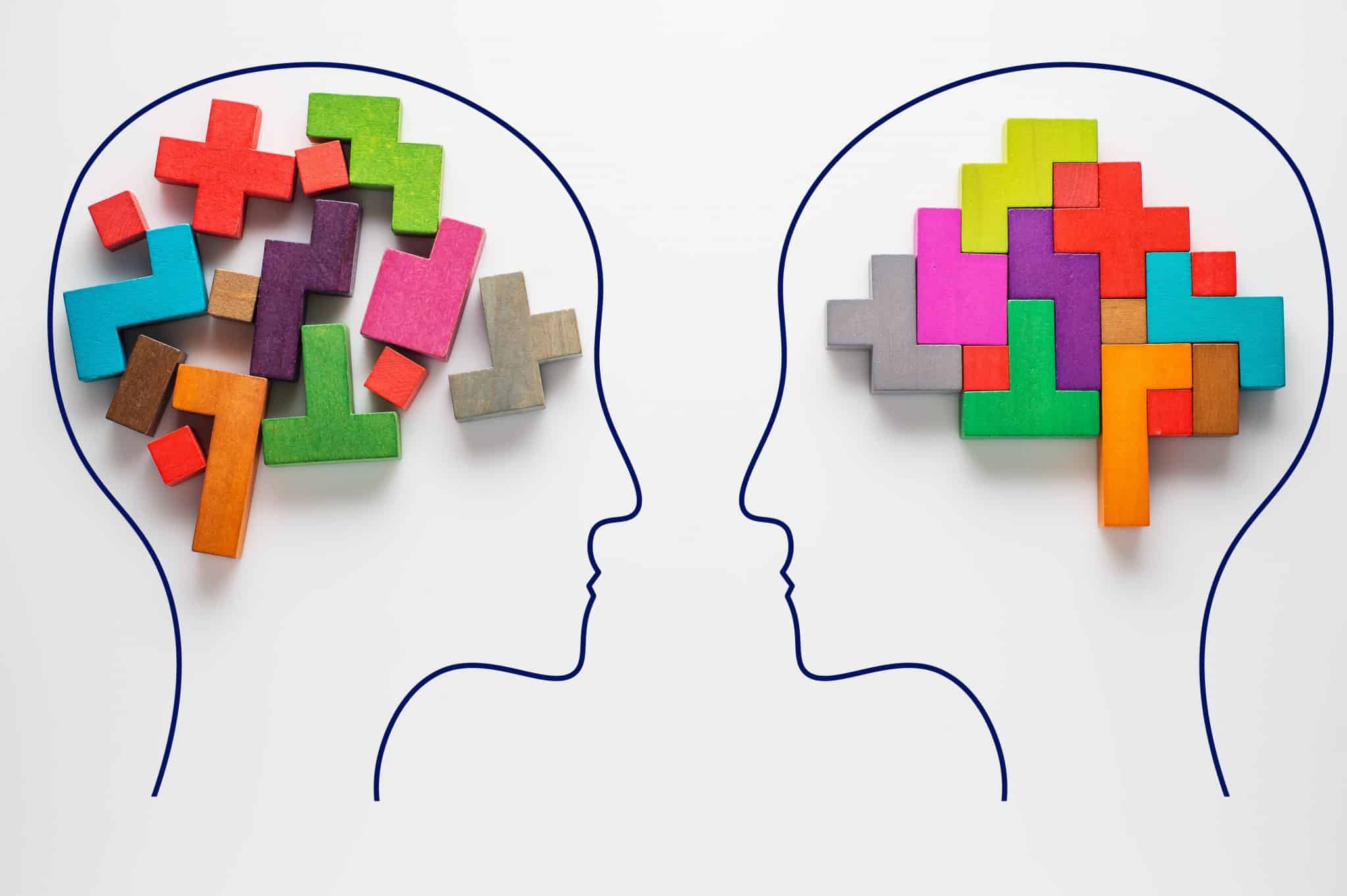Co-dependency and interdependence are two completely different relationship experiences.
Co-dependency sees a person channelling most of their attention and energy into supporting important people in their lives without considering their own needs.
Likely to generate relational imbalance and to impact the individual capacity for a healthy and equal relationship, co-dependency puts one person above the other, whereas interdependency requires both people to be able to operate freely appreciating each other’s differences.
In healthy interdependent relationships, couples will feel closely attached and intertwined, but still capable of making their own decisions, whilst in unhealthy co-dependent relationships, one person is working tirelessly to fill the other person’s needs and to make the other person happy.
In this article we can reflect on both co-dependent and interdependent relationships, and how therapy can provide a person with support within a safe space.
What is on this page
Co-dependency
Co-dependency affects one’s ability to have a healthy and equal relationship. Co-dependency is often misunderstood and defined as being dependent on another person, however, this refers to an imbalanced and unhealthy relationship and actually has very little to do with dependency. These relationships can be with a partner, friend, or family member. Within a co-dependent relationship, one person often assumes responsibility for meeting another person’s needs, so much so that their own needs or feelings are disregarded.
Co-dependency is often a topic examined within counselling sessions when discussing – relationships with partners or family members, addiction and self-esteem. People experiencing co-dependent behaviour patterns often form relationships that are emotionally destructive, abusive, one-sided and dysfunctional. Therapy can be a great support when working through these factors.

How do I know if I am co-dependent?
Signs of Co-dependency include:
- Overcoming any disillusionment by holding on to an idealised fantasy of the other person
- Accepting feeling tense and on edge in order to avoid conflict
- Feeling the need to check in with the other person and/or ask permission to do daily tasks
- Overwhelming fear of abandonment, holding on to a relationship at any cost
- Looking for a partner to fix or to look after
- Unable to say no, low self-esteem, poor boundaries
- Spending all of their time on the other person and finding little time for themselves
- Feeling guilt and the need to apologise, even when that person is not to blame
- Accepting mental and physical abuse and often feeling sorry for the other person
- Holding others responsible for how they feel about themselves
- Regularly trying to change or save troubled people that they don’t have the ability to fix
- Doing anything and everything for the other person, even if it makes them feel uncomfortable
- Holding the other person in a position higher than themselves
- Feeling a loss of sense of self within the relationship
- Need for sameness and merging, unable to differentiate and individuate
Effects of Co-dependency:
- Poor health, eroded self-esteem or suffering from anxiety and depression
- Feeling powerless and needing to control the other
- Experiencing problems with intimacy
- Losing true sense of self from constantly giving
- Difficulty removing themselves from the relationship
- Not having a life outside of the relationship
- Being afraid to say “no”
- Not sticking up for themselves
It is important to know that Co-dependency can come in all shapes and sizes, in a variety of severity levels. It can also develop in all sorts of relationships including parent-child, partner-partner, friend-friend and even co-worker-boss relations. There are no two experiences of co-dependency exactly the same.
Interdependence
Interdependence is a type of relationship that involves a healthy balance between each other and oneself. Interdependent relationships mean both partners work together to meet the other’s needs – emotionally and physically.
Couples in love can often feel an attachment, closeness and dependence on the other whilst interconnecting their lives. The power within their relationship should be more balanced and each partner aim at making equal contributions and take equal accountability.
These relationships can lay a positive foundation where each partner has their own sense of worth and can make decisions with freedom and no sense of fear or possible consequences. Interdependent relationships mean both partners will support the other without manipulation or control.

Effects of interdependency:
- Healthy self-esteem and strong sense of self
- Knowing what they like themselves and what matters including hobbies, interests and values
- Freely spending time with family and friends
- Not being afraid to ask for what you want or say “no”
- Being open and approachable with each other with clear communication
- Having a safe space to feel vulnerable
- Owning personal responsibility for behaviours
- Good productivity levels and continuing to pursue personal goals
- Healthy boundaries and equal parts within the relationship
- Receiving support and encouragement when achieving
Interdependent relationships can allow a safe space where each partner feels valued and respected. This can create a very positive and loving relationship where both are aware they are not alone and can find security in each other. Should one partner feel any issues have arisen within the relationship, there is an openness to discuss and conquer them together, resulting in a decision that better benefits both partners. Therapy can support couples towards achieving interdependence.
Why therapy?
Co-dependency is not seen as a medical condition; it is an emotional and behavioural condition. Therapy can be the first step to healing from past co-dependency issues and relationships.
Therapy can be a very helpful process in identifying a person’s co-dependent tendencies and improving relationships with others. These therapy sessions involve learning to recognise repressed emotions and accept them. The sessions can also help to understand how co-dependent patterns have evolved from past experiences and how they may have shifted into other relationships. The therapist might help by explaining how to provide support in a positive way and practise putting a person’s own needs before another’s.
Individual, group, or couples therapy can benefit co-dependent sufferers along with their close relationships. It is always important to choose a therapy session that you are most comfortable with.

